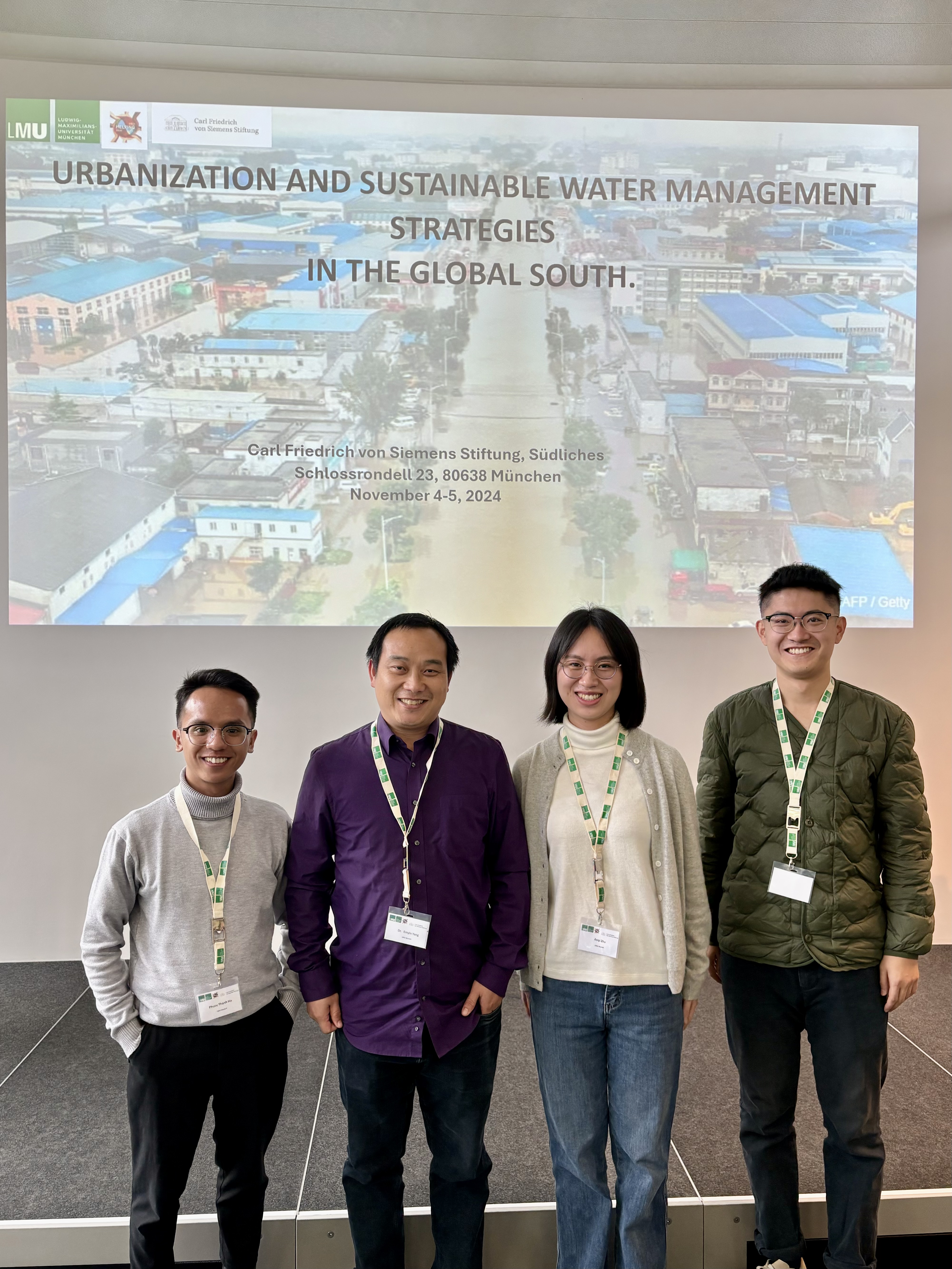STORIES Members Co-organized International Workshop on Urbanization and Sustainable Water Management
The International Workshop on Urbanization and Sustainable Water Management was successfully held on November 4-5, 2024, at the Carl Friedrich von Siemens Stiftung in Munich. The workshop was organized by Dr. Olabisi S. Obaitor and co-organized by Dr. Liang Emlyn Yang, in collaboration with the IAHS Urban Water Working Group. STORIES group members actively participated in organizing and presenting at the workshop, engaging in productive discussions with researchers from the Global South.

Dr. Liang Emlyn Yang moderated the second afternoon session of the workshop. Wenhan Feng served as the technical assistant throughout the two-day workshop and greatly contributed to the successful organization of the workshop. STORIES group member Thanh Phuoc Ho presented research on “Impact Assessment of Land-use Change on Watercourses and Water Quality Predictions Using Supervised Machine Learning: Case Study of Bang Pakong River, Chachoengsao Province, Thailand.” The study revealed significant correlations between agricultural land decline, urbanization, and water quality deterioration (1999-2022), while introducing an innovative Multilayer Perceptron Artificial Neural Network (MLP-ANN) model for efficient water quality monitoring.

STORIES group member Anqi Zhu presented research on “Social Capital and Community Flood Resilience in the Pearl River Delta Region, China: An Agent-Based Modeling Approach.” The study employed agent-based modeling, incorporating empirical data from 25 Pearl River Delta communities, to examine how different types of social capital (bonding, bridging, and linking) influence community flood resilience. The research revealed non-linear relationships between collective social capital and their dynamic contributions to community resilience.

The event convened international experts to examine urbanization’s impacts on global water systems. Discussions highlighted critical challenges including rapid urbanization in the Global South and its strain on water resources, increasing flood events exacerbated by urban expansion, and pressures on coastal cities’ water systems. A key outcome of the workshop was a call to action for integrating nature-based solutions and reintroducing biodiversity into urban environments to counterbalance the environmental and social challenges posed by urbanization.



